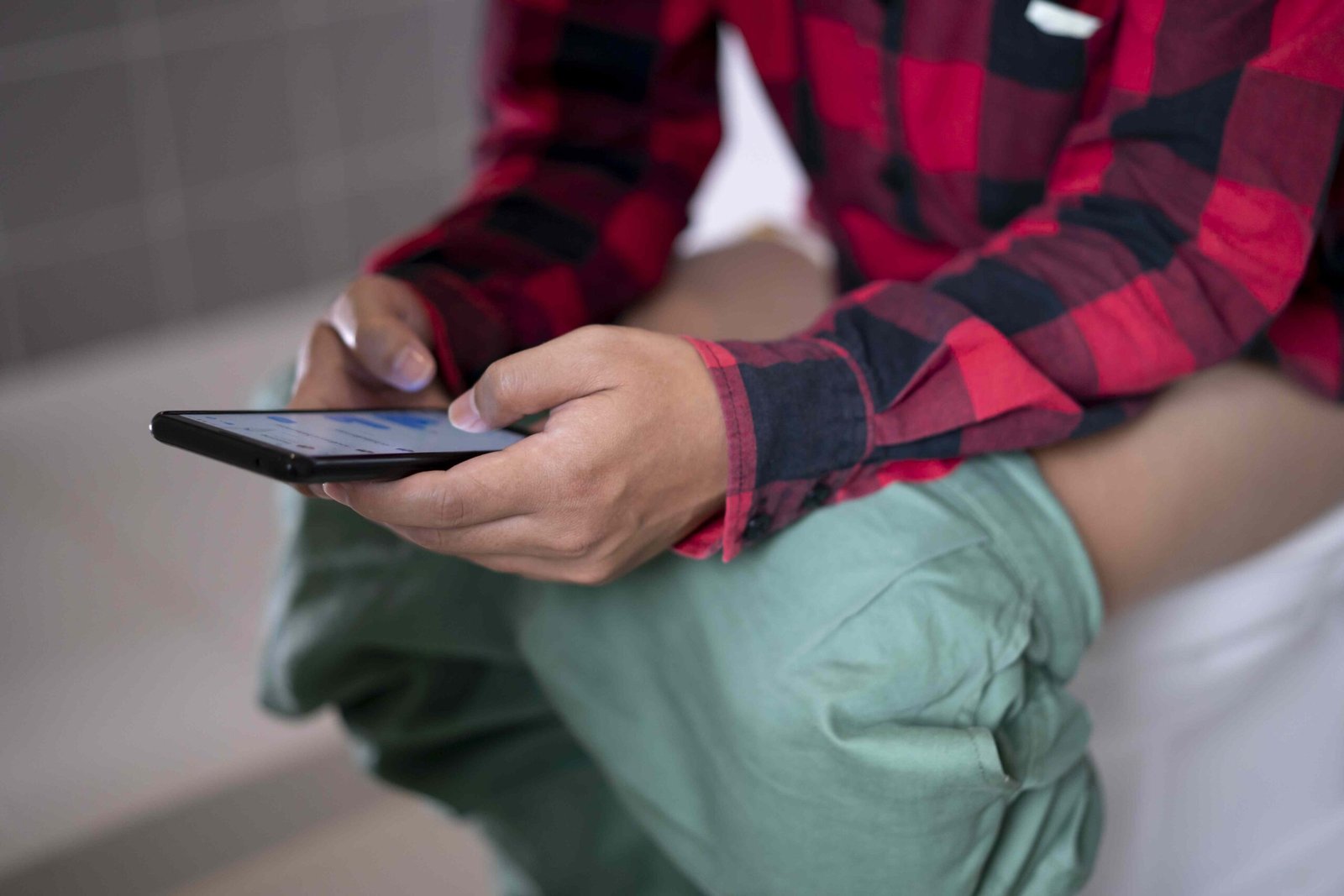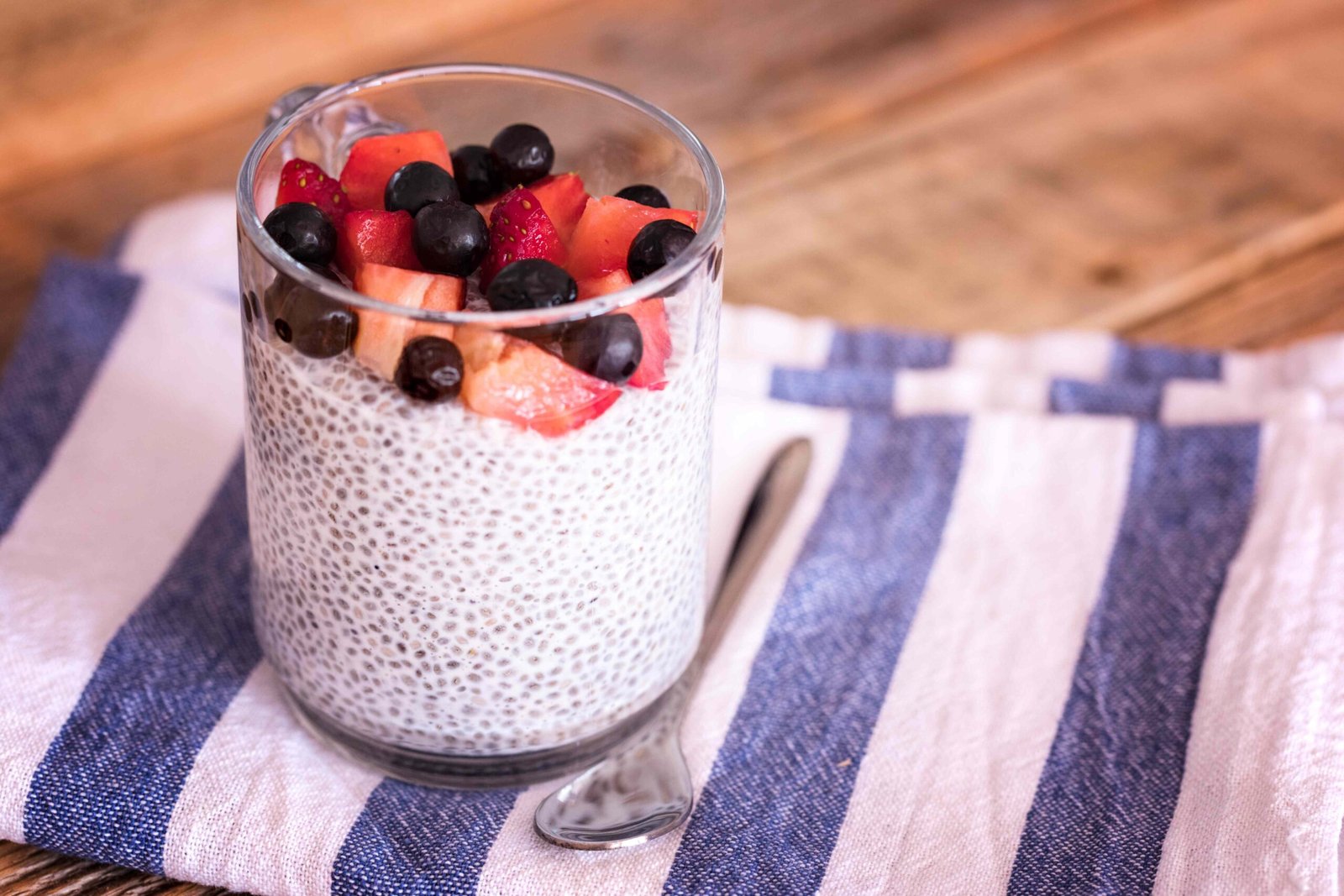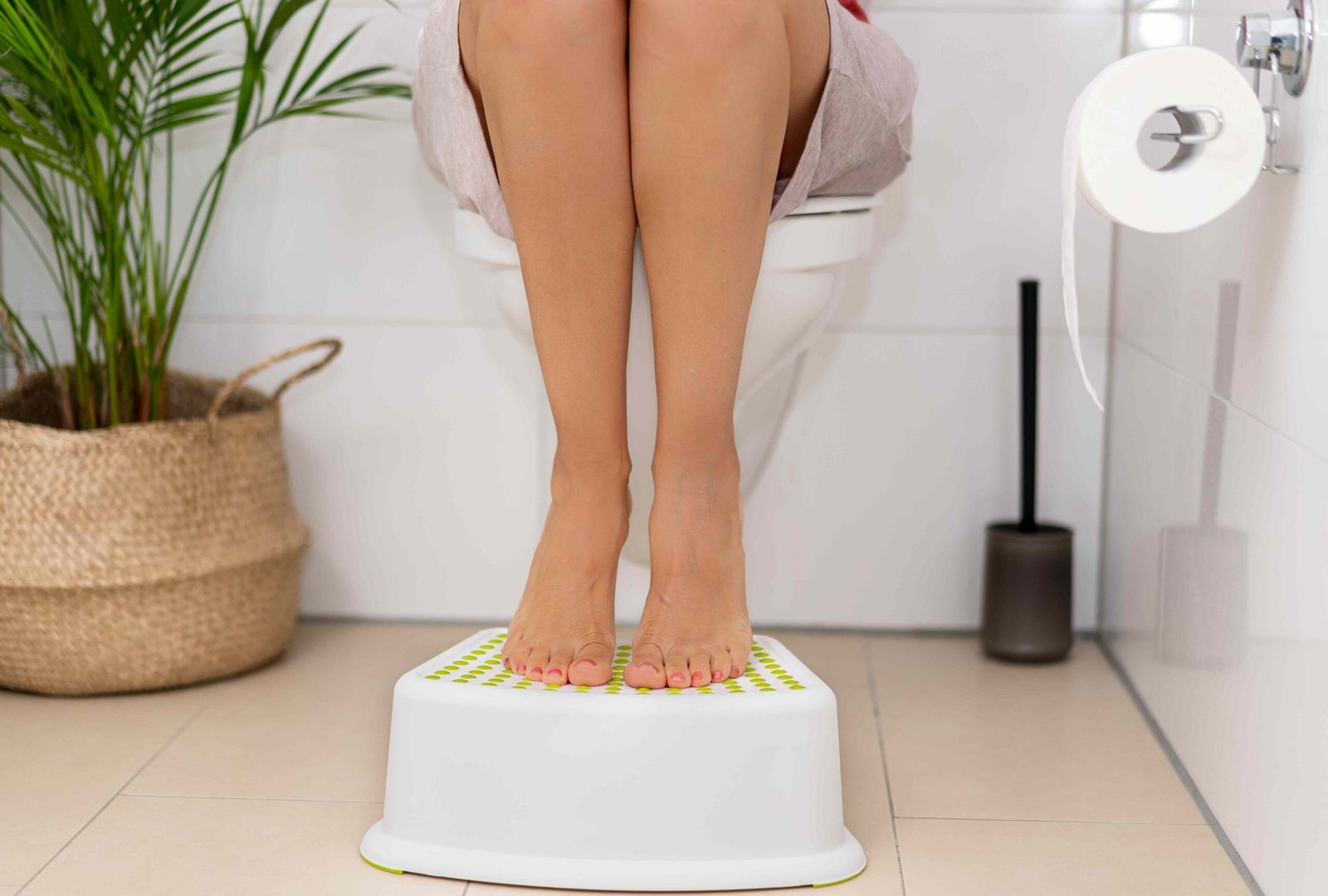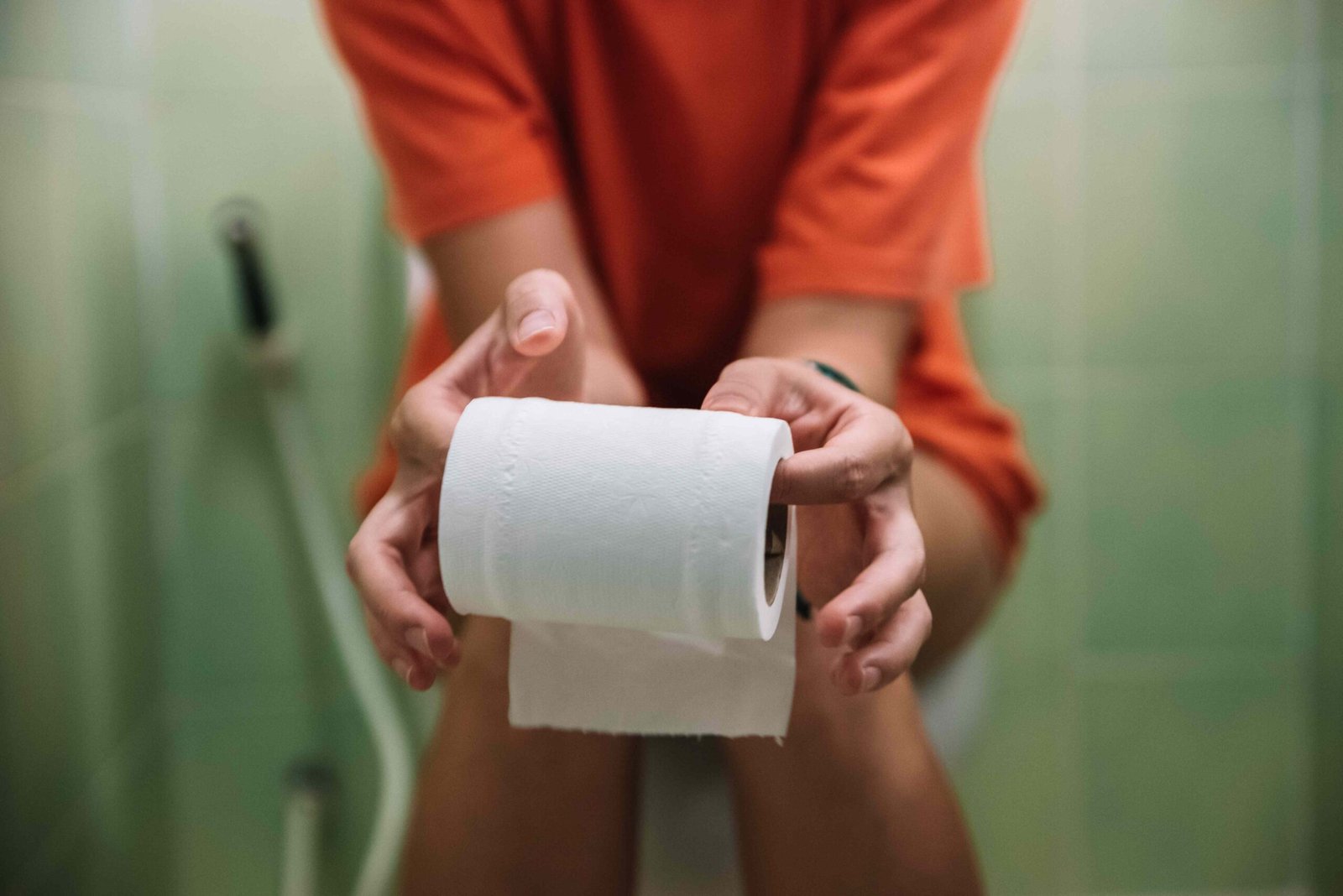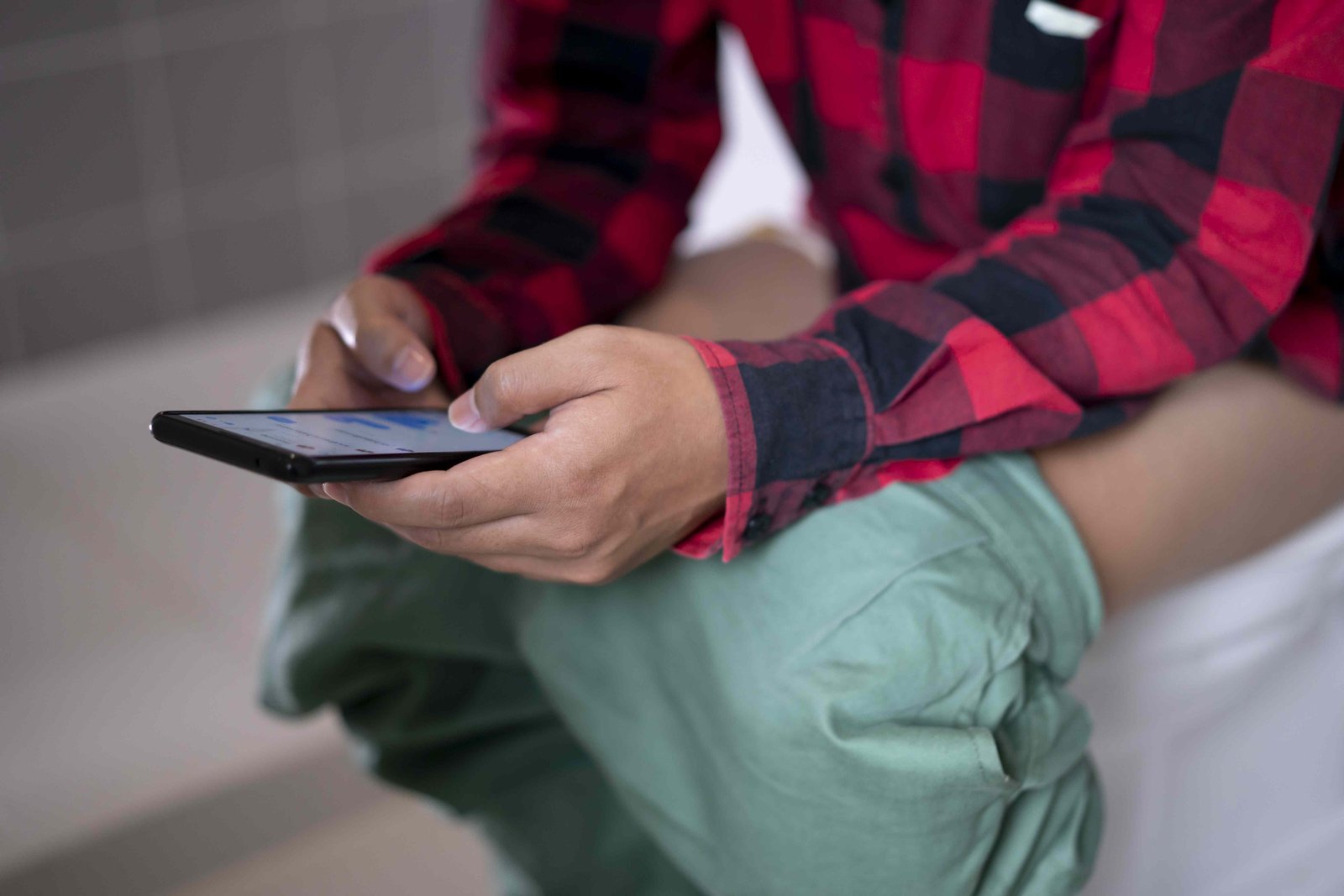
How long does it take you to poop, from sitting down to wiping? How long should it take?
If you’re like many younger Americans—we’re talking millennials and Gen Z—it might be taking you a tad too long, according to a new national poop survey conducted by Health. Almost half of millennials (47%) and just over half of Gen Z (51%) reportedly take at least six minutes to have a bowel movement—significantly fewer Gen X (37%) and boomers (23%) take that long.
Health.com / Datawrapper
To be clear, “there is no specific, evidence-based ‘normal’ amount of time to spend on the toilet,” Amit Ahuja, MD, head of gastroenterology at Cylinder Medical Group, told Health—but that doesn’t mean there aren’t some general guidelines for your time spent pooping.
Five minutes is a reasonable cutoff time for a bowel movement, according to Jim Cox, MD, co-director of the gastroenterology and nutrition module at the Anne Burnett Marion School of Medicine at Texas Christian University.
“If someone hasn’t had a bowel movement within that timeframe, then they should get up and try again later,” he told Health.
But going over 10 minutes on the toilet—or severe difficulty having a bowel movement—could be a red flag. “Clinical concern should arise when there is prolonged straining, incomplete evacuation, or the need for manual assistance, rather than based on a strict time threshold,” said Ahuja.
Our survey didn’t pinpoint a specific cause for the prolonged poop periods, but certain other stats sounded alarm bells for experts.
The first? Young adults are constantly on their phones—even when they’re on the toilet. Gen Z is the most likely to be scrolling while indisposed, with 49% always using the phone on the toilet, followed by 39% of millennials. Those percentages drop drastically for Gen X (22%) and boomers (6%).
Health.com / Datawrapper
But something physical could be going on, too. Constipation is most common among millennials, with 33% reporting they’ve been backed up in the past month. More specifically, 12% of millennials have been diagnosed with IBS-C, a subtype of irritable bowel syndrome where constipation is the main symptom.
You also can’t ignore the connection between mental health and poop: More Gen Z (83%) and millennials (80%) indicated that anxiety, stress, or mental health disorders affected their bowel movements in the past month, compared to just 69% of Gen X and 50% of boomers.
Health.com / Datawrapper
“The mind-gut connection can be easily overlooked,” Amanda Sauceda, MS, RD, a registered dietitian and lecturer of nutrition and dietetics at California State University–Long Beach who specializes in gut health, told Health. “Your body, especially your gut, can feel mental stress, which can translate to constipation and increased toilet time.”
And the traditional Western diet certainly doesn’t help things, said Cox, who also suspects eating too little fiber and too much processed food contribute to more time spent on the toilet.
If extended toilet time is a regular practice, it’s certainly not good.
If you have hemorrhoids, sitting on the toilet for long periods of time could make them flare, said Cox. It’s also possible to experience compressed nerves in the legs or pain in the neck, back, and upper legs from holding that posture longer than necessary.
And then there’s the germ factor. “Using phones on the toilet increases the risk of germ transmission since mobile phones are well-documented vectors for microbial contamination,” Ahuja said.
Plus, more screen time in general isn’t great. “Frequent phone use during bathroom time can reinforce the association between toileting and screen use, potentially leading to habit formation or dependence on the phone for distraction or emotional regulation,” Ahuja said.
On the other hand, people may be using the quiet, uninterrupted phone time as a way to relax and even help them go to the bathroom. “If that’s the case, working on a stress-reduction technique that doesn’t involve the phone would be helpful,” Sauceda said.
First up: Fiber. It’s the macronutrient that keeps things moving and serves as a prebiotic for good gut bacteria—but you’re probably not getting enough. The Academy of Nutrition and Dietetics recommends that women get at least 25 grams per day, and men should try for 38 grams (most people only get about half that).
“Fiber is the key, and consistency is the trick,” said Sauceda. Eating more fiber once in a while won’t cut it—it has to be part of your regular routine, but take it slow at first to give your body time to adjust.
Water is another bowel movement essential. “Anytime you up your fiber, you also need to drink more water,” said Sauceda. “Water helps fiber move through your gut, otherwise you’re more likely to feel constipated.”
And don’t try to hold your poop—go when you feel like you have to go. “Try to have a bowel movement when you feel the urge to evacuate the colon,” said Cox. “Holding the stool causes the colon to absorb more water out of the stool. This hard stool may be more difficult to pass.”
If you notice BM’s are taking longer or you’re experiencing other changes when you try to go, let your physician know. “Any change in bowel habits, whether it is constipation or diarrhea, should warrant a trip to a health care professional,” Cox said. “If you experience rectal bleeding, weight loss, or persistent abdominal pain, seek urgent medical care.”


